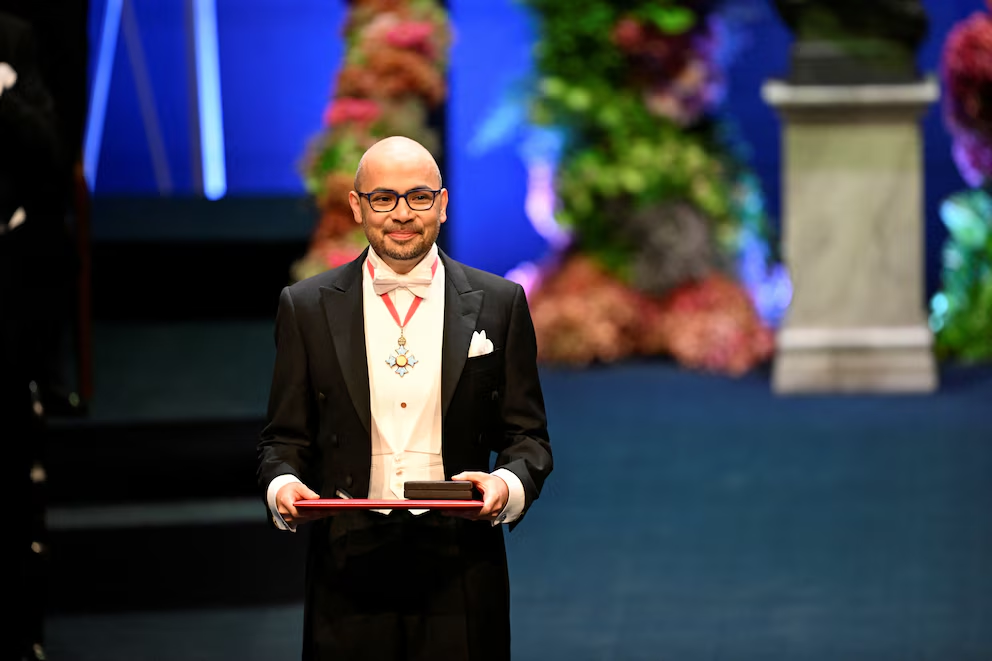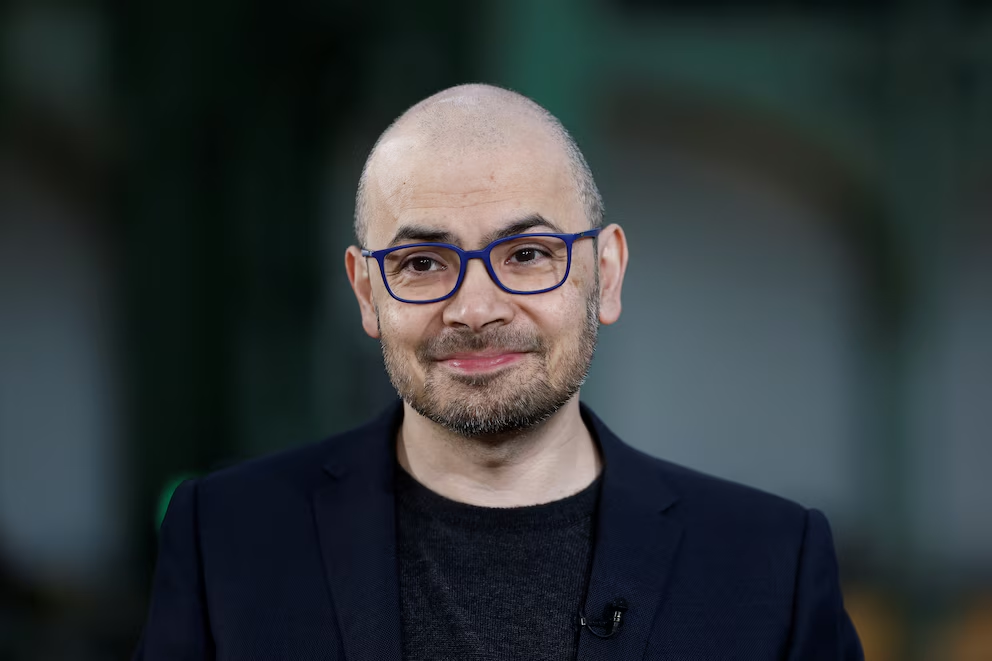Demis Hassabis, Google DeepMind CEO, isn’t content with just a 2024 Nobel Prize in Chemistry for AlphaFold, the revolutionary tool that predicts the 3D structure of proteins. Now, Hassabis sets his sights on an even more ambitious future: Artificial General Intelligence (AGI).
From AlphaFold to the AI that will save the world: The vision of Demis Hassabis
Alongside his colleague John Jumper, Hassabis received the Nobel Prize for AlphaFold. This tool models proteins, a process that previously took years but now takes just hours thanks to AlphaFold. This impacts research on malaria vaccines, longevity, and cancer treatments.
“Receiving this honor was a lifelong dream,” Hassabis confessed to Time, still awestruck by the award. However, for this visionary, AlphaFold is just a stepping stone towards a much larger revolution.
Más allá de AlphaFold: La promeBeyond AlphaFold: The promise of AGI
While AlphaFold has revolutionized biology, Hassabis acknowledges its limitations. “It doesn’t have an understanding of the world as a whole, it can’t conduct research or make scientific discoveries on its own”.
This limitation fuels his pursuit of AGI, an AI with the capacity to solve known problems and devise solutions for global challenges like climate change and currently incurable diseases.
AI: The key to a future of peace and abundance
Hassabis envisions AGI transforming society, eliminating resource scarcity, and promoting peace. “I believe some of the biggest problems facing our society today, whether it’s climate or disease, will be solved by AI solutions,” he states. His optimism stems from the conviction that these transformative solutions are within our reach.
The scientific life raft and ethical responsibility
Hassabis’s vision positions AI as a “scientific life raft,” an essential tool to address humanity’s most urgent challenges. This approach, however, must be accompanied by deep ethical reflection.
Developing such a powerful AGI requires careful consideration of its implications and a commitment to the safety and well-being of society. Hassabis imagines a future of peace and abundance driven by AI, but it will depend on our ability to develop and use this technology responsibly.

AGI: Hassabis’s dream between scientific promise and ethical dilemmas
The visionary scientist finds himself at a crossroads between the promise of an AGI that revolutionizes science and the growing ethical concerns its development raises.
The possibility of an AGI capable of solving humanity’s most pressing problems is on the horizon… However, market pressure and the inherent risks of such a powerful technology raise crucial questions.
The path to AGI: Cautious optimism
Unlike the overflowing optimism of some AI leaders, Hassabis is cautious. “I think AGI is between 5 and 10 years away”.
For him, AGI has the potential to make profound scientific discoveries and offer new explanations of the universe. “I identify primarily as a scientist,” he affirms, reinforcing his commitment to advancing knowledge.
Between science and the market
DeepMind’s funding by Google, a for-profit corporation, introduces an inherent tension. Market logic, focused on profitability, could clash with Hassabis’s scientific ideals. A clear example is the clause that, in 2014, prohibited the use of DeepMind’s technology for military purposes.
“It was a red line,” recalls Hassabis, who conceived of AI as a “scientific life raft”, not a weapon. However, that clause disappeared, and DeepMind’s AI systems are now sold to governments and militaries. The question is: how far is he willing to compromise his principles to achieve his vision of AGI?

The Risks of AI: A Call for Global Cooperation
Hassabis is aware of the inherent risks of AI, especially in the wrong hands. Synthetic viruses, autonomous weapons, and behaviors “misaligned” with human values are potential threats. “We have to make sure that the most powerful systems are not released without any control,” he warns.
While Google implements rigorous safety testing, other companies like Meta and DeepSeek do not follow the same protocol. This landscape makes the need for international cooperation even more urgent. Hassabis advocates for global collaboration to ensure the safe and beneficial development of AI, a challenge complicated by current geopolitical tensions.
The Future of Work in the Age of AGI
The automation of work is another crucial challenge. AGI can perform tasks more efficiently than humans. So, how will society adapt to this new reality?
What role will humans play in a world where machines can do much of the work? These are questions that require deep social and political reflection and should be addressed urgently as we approach the age of AGI.

AGI and the Future of Work: Demis Hassabis’s Challenge for a Transformed World
Demis Hassabis sees AGI as a tool to solve humanity’s most pressing problems. However, the path to AGI presents colossal challenges, especially in the labor and social spheres. How do we prepare for a world where machines can perform much of human labor?
Mass Automation: Abundance or Unemployment?
AGI has the potential to automate tasks on an unprecedented scale, raising the possibility of widespread unemployment.
“Mass automation could create a world where abundance is possible, but with new questions about how to organize society,”” warns Hassabis.
This scenario demands a new political philosophy that addresses the social and economic implications of a world transformed by AI. It’s not just about creating intelligent machines, but about reimagining our society.
Gemini, Astra, and the New Generation of AI
Meanwhile, DeepMind continues to innovate. Gemini 2.5, its latest AI model, has surpassed competitors in several key metrics. Project Astra, focused on creating a universal digital assistant, is advancing rapidly.
“We are developing digital agents that can carry out complex tasks autonomously”, explains Hassabis. This assistant, powered by Gemini, could even make scientific discoveries on its own.
Robots with AI: Interacting with the Physical World
Google is also developing robots with AI, like Gemini Robotics, capable of performing basic physical tasks. This is a significant step towards creating intelligent machines that interact with the real world, bringing us closer to Hassabis’s vision of AGI integrated into our daily lives.
A Bright Future with AGI: Utopia or Dystopia?
Hassabis imagines a bright future thanks to AGI, where climate change, disease, and resource scarcity are relics of the past. However, this utopian future depends on AGI being developed safely and ethically.
Hassabis’s Riskiest Gamble
The development of AGI is, in Hassabis’s words, “the riskiest gamble” of his life. His decisions will determine not only the fate of his own vision, but the future of humanity. “If I succeed, AGI will change the world,” he states. The question is: in what direction?

